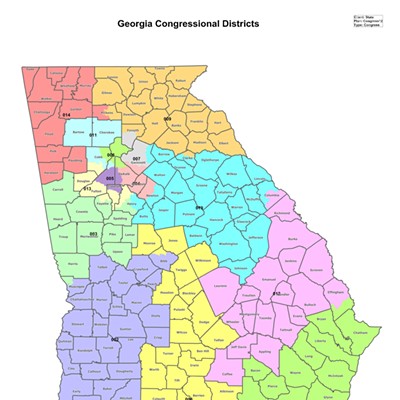THE GOOD AND EVIL of politics can be traced forensically through the money trail. If cash is used the path vaporizes before it can be found, but with written records the audit potential is obvious.
Sadly, when you have an electorate that refuses to diligently watch the political wheels that turn before them, honesty and virtue are left by the wayside. It is then that money and power take over.
The corrupt history of the electronic voting machines is one that deserves a close inspection. It is a tale of using money for influence, turning former politicians and bureaucrats into advocates for a failed technology, and convincing everyone that electronic voting machines are a safe, reliable way to conduct modern elections despite the growing evidence against it.
The leaders in this fight for transparency have been the Georgia Constitution Party under Ricardo Davis, and Garland Favorito from VoterGA.Org. Their hard work and research led to the recent Federal Court decision that the current voting systems used in Georgia are not secure, unconstitutional, and should be dismissed immediately.
Judge Amy Totenberg in the North GA Court ruled that electronic machines can be compromised, and she based that ruling on the compelling plaintiffs’ arguments and the testimony of experts like Princeton Computer Scientist Andrew Appel.
Totenberg concluded there is no way to absolutely verify results that are generated by a machine compared to the gold standard of votes written to paper which are 100% verifiable.
The voting fiasco of the Bush-Gore 2000 election with hanging chads and frustration with Optical Scan Recorders (OSR) led to the discussion about moving toward an electronic voting machine system which many believed would be more efficient and secure.
A great deal of time and effort was spent on the sanctity of the vote and verifiability. Oddly, the only real problem with OSR technology was you had to occasionally shake the boxes to settle the paper ballots inside.
In Chatham County there was a recount in the 2003 race between John McMasters and Gordon Varnadoe which resulted in a difference of one vote. Someone placed their mark outside the bubble on the OSR paper ballot which nullified that particular vote.
The point is if a recount was done on an electronic voting machine in that race, the recount would have had no change in the count. When people voted on paper, their vote counted.
On April 18, 2001, the GA Governor, Roy Barnes, signed into law Act 166, and it included the provision that: “Such voting systems shall be required to have an independent audit trail for each vote cast.”
This was almost universally interpreted to mean it would have a paper backup because it is a physical way of observing the true intent of the vote.
Something went off course in 2002 when the Secretary of State, Cathy Cox, entered into an agreement with Diebold for a 54 million dollar contract to buy their electronic voting machines which did not comply with Act 166.
The machines didn’t have a verifiable paper trail. The lobbying company for Diebold was headed by Lewis Massey and Bruce Bowers (Massey Bowers LLC).
Massey just happened to be Cathy Cox’s supervisor as the former Secretary of State. Was there a conflict of interest?
There must be something in the Fulton County water because every Secretary of State seems to change their position on electronic voting machines when they become part of the bureaucratic system.
In 2006, Karen Handel wrote a white paper on these early electronic machines with very strong positions. She proposed:
a) The electronic voting machines currently used in Georgia’s elections are already obsolete.
b) Voters should have the ability to review their ballot...
c) Procedures must be established for audits of elections to verify that the electronic vote totals are accurate.
d) The paper audit trail should be the determining factor in discrepancies in the vote and should be the ballot of record.
In 2009, in the heat of a political race, the Handel position changes in favor of the use of these unstable machines. Why the change?
Could campaign contributions have caused this? VoterGA.org believes it is directly connected to donations by friends and family members of Lewis Massey’s lobbying group.
In a moment of irony, Handel lost a 6th District Congressional race in 2018 on electronic machines and demanded a recount. Those stubborn machines spit out the same result every time. The paper absentee ballots were rock solid.
This was a solid Newt Gingrich district, and she lost to a gun control advocate. Was there hacking involved? Who knows? There was no audit trail.
There is much more to be discussed about the electronic voting machines. The new machines we are spending millions on are no better than the last ones.
The reassuring article by Cathy Cox published recently in newspapers around the state is suspect. She created a report in 2001 entitled, “The 2000 Election: A Wake Up Call for Change and Reform.” This “white paper salvo” played a major role in where we are today.
Your right to vote is being tampered with by people who bow down to money, power and other idols of their choosing. You hold the sword of truth and possess a power given to you by the founders of this country.
“We the people” is a force to be reckoned with, but you must be willing to enact it. Regardless of the political party you support, America’s future depends upon it.
























